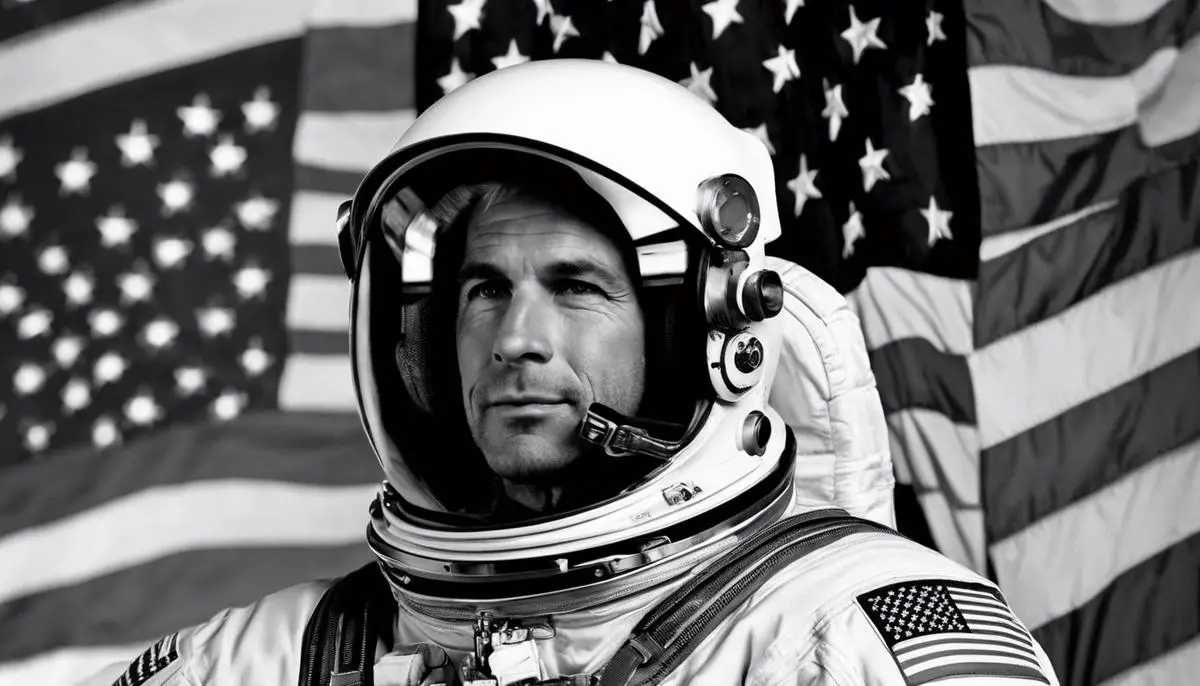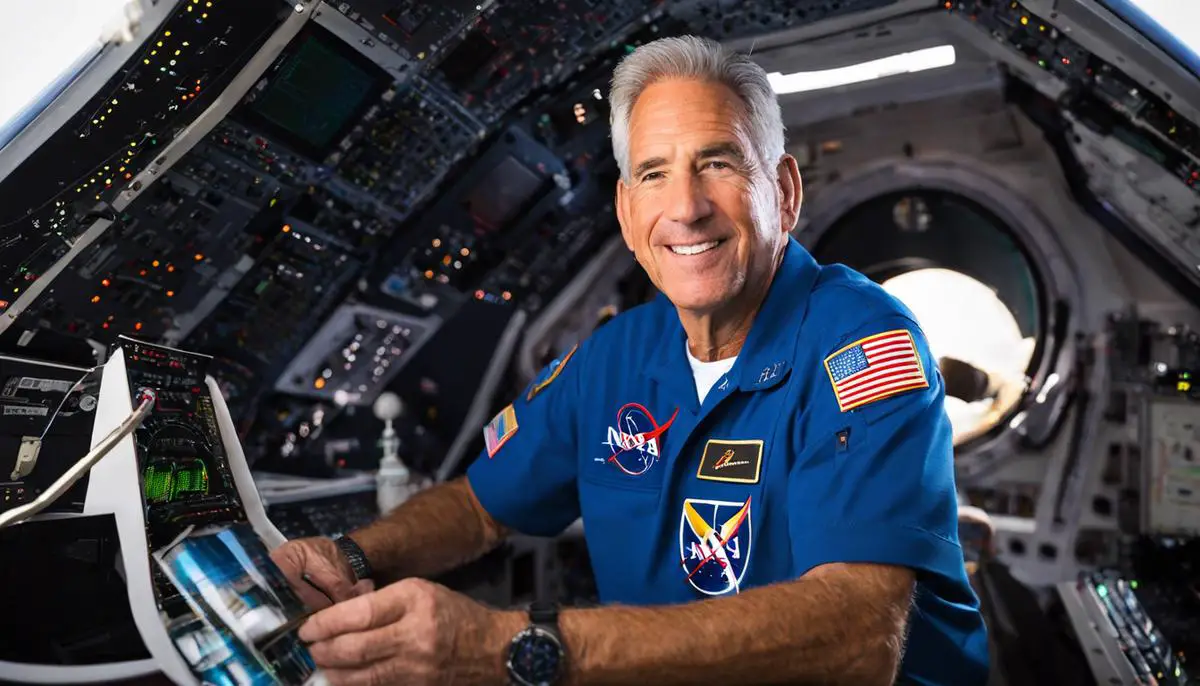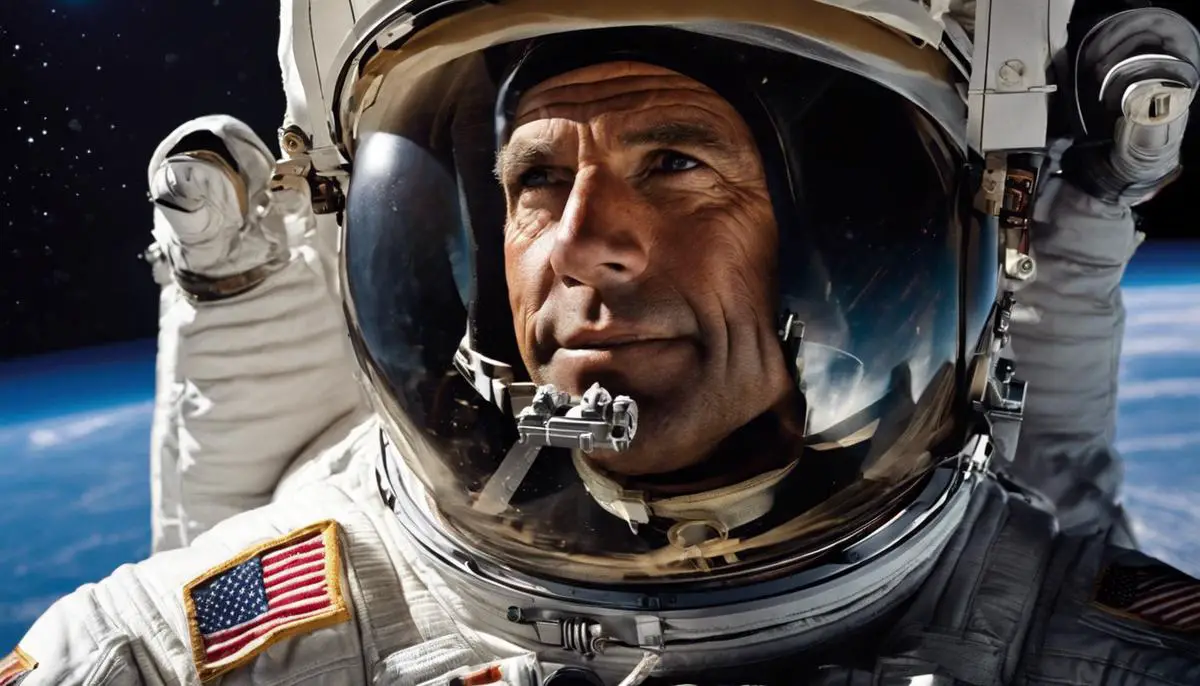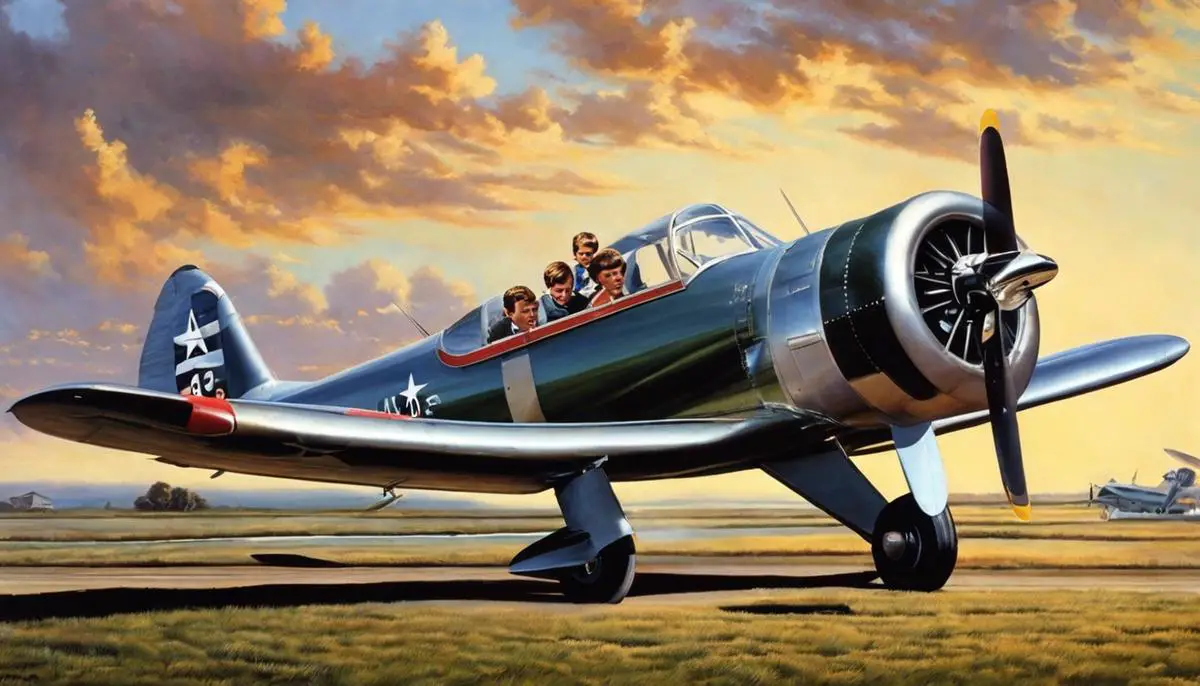American astronaut and aeronautical engineer, Donald Kent ‘Deke’ Slayton, has carved himself an indelible space in the annals of space exploration. Born in a humble family background in Sparta, Wisconsin, his early years marked by hardship and resilience would lay the foundation for an incredibly influential career in aeronautical engineering and space exploration. Slayton’s inspirational journey from a young boy intrigued by aviation to a key figure in NASA’s momentous Mercury Program exposes not only his undeniable contributions to space expeditions but also his unwavering determination in confronting unexpected challenges. This essay delves into every pivotal moment, from his productive role within NASA’s initial endeavors to his significant part as the Director of Flight Crew Operations, illustrating the enduring legacy Slayton left behind in the sphere of space exploration.
Contents
Early Life and Education of Deke Slayton

Deke Slayton’s Role in the NASA’s Mercury Program
The Significance of Deke Slayton in NASA’s Mercury Program
Within the annals of space exploration history, one figure who played a pivotal role in NASA’s Mercury Program is Donald K. ‘Deke’ Slayton. Despite an unyielding health obstacle that prevented him from personal space travel, Slayton’s contributions were integral to the implementation and triumph of this monumental operation.
Nominated as one of the Original Seven astronauts in NASA’s earliest team, Slayton was chosen to command the second orbital flight. However, an unexpected diagnosis of idiopathic atrial fibrillation, an irregular heart rhythm, sidelined him from this role. Far from letting this setback deter him, he leveraged his expertise to influence the undertakings of the Mercury Program profoundly.
Relinquishing dreams of space travel, Slayton re-charted his path towards astronaut management. His comprehensive understanding of aeronautics, coupled with his affinity for precision and meticulous planning, made him an invaluable asset to the Mercury team. Appointed as NASA’s first Astronaut Chief, he oversaw crew training, equipment testing, and flight assignments. Slayton’s approach to these tasks was underpinned by his rich personal perspective, drawn from his accumulated knowledge as an astronaut trainee and an experienced Air Force pilot.
Through this novel role, Slayton devised innovative methodologies that improved the safety protocols, astronaut training, and mission execution – his indomitable spirit did not diminish even when his dream of piloting a spacecraft was thwarted. He persistently lobbied for exploration, became an advocate for astronaut safety, and extended his influence to rigorous astronaut selection procedures.
Evidently, Deke Slayton’s expertise as a seasoned pilot and a dedicated scholar of aeronautics left an indelible mark on NASA’s Mercury Program. His influence extended beyond crew and mission management. He represented a beacon of determination which inspired all those involved in the project. His experience as an aeronautic scholar and aspiring astronaut lent invaluable insights that greatly bolstered the safety and efficiency of space missions.
In conclusion, Deke Slayton’s contribution to the Mercury Program transcended his initial assignment to fly a spacecraft. His stubborn resilience and unwavering commitment to the mission’s success broadly shaped NASA’s early space exploration attempts. While his original dream of venturing into space might have been deferred, his impact as the Astronaut Chief carved an exceptional legacy for both him and NASA’s Mercury Program.

Deke Slayton’s Contributions as the Director of Flight Crew Operations
With a career confluence of academia, piloting, and administrative prowess, Deke Slayton’s tenure as the Director of Flight Crew Operations at NASA undeniably established a remarkable blueprint for future mission directors. His role in NASA’s Mercury Program redefined astronaut management and forever reshaped space exploration’s trajectory.
A brief detour occurred in Slayton’s path when a health obstacle surfaced, specifically an irregular heart rhythm, resulting in medical disqualification from flying in space. Yet, in perhaps an ironic twist, Slayton’s impediment didn’t stymie his dreams of space exploration but rather reframed his approach.
Thrust into an administrative position, Slayton began to wield influence over NASA’s Mercury Program as the Astronaut Chief. Although not physically in space, his intellectual brilliance rapidly began to propel revolutionary advancements within NASA’s mission preparation and execution protocols.
Slayton’s innovations in astronaut safety, training, and mission execution cumulatively built a new paradigm within NASA operations. He shifted NASA’s focus from merely achieving spaceflight to understanding how those flights manifest. Additionally, his advocacy for astronaut safety and stringent astronaut selection procedures bred a culture of preparedness, rigor, and meticulousness within NASA.
His keen understanding of aeronautics, born from his scholarship, coupled with a deeply intimate knowledge of the firsthand pilot experience, facilitated a relationship of mutual understanding with the astronauts. He was able to guide them through the intricacies of the missions, while also empathizing with their anxieties and apprehensions. This ultimately elevated the preparedness and performance of all those involved in the Mercury Program.
More than procedural advancements, Deke Slayton’s legacy in NASA’s early space exploration underscored the fundamental importance of in-depth astronaut understanding, comprehensive training, and unfaltering safety measures. His influence was not only a catalyst for the success of the Mercury Program but cascaded throughout NASA, shaping the horizon of future space exploration endeavors.
Building NASA’s journey to space on the foundation of safety, comprehension, and meticulousness, Deke Slayton’s contribution was crucial to overcoming the infancy hurdles of space exploration. Although he may never have stepped on a spaceship, his intellectual footprints are indelible in NASA’s history and continue to lead the way in their journey into the cosmos. True to his innovative spirit, Slayton remains a vital inspiration for anyone ambitious enough to gaze up at the night sky and dream of what lies beyond.

Legacy and Impact of Deke Slayton on Space Exploration
Deke Slayton’s journey, beginning as a small town boy in Wisconsin to becoming one of NASA’s first astronauts and an instrumental figure in the Mercury Program, is widely recognized as a stirring chronicle of perseverance and resilience. Aside from his intricate involvement and contributions to NASA’s earliest achievements, Slayton’s ascendancy to an administrative role offers immeasurable insights into his value within space history. His persistence towards his dream, despite health obstacles, set the stage for a legacy of inspiration and innovation that permeated generations of astronauts and space scientists.
As the Director of Flight Crew Operations, Slayton’s experience, know-how, and inherent leadership skills proved instrumental in navigating the uncertain territories of early space exploration. Interpreting lessons learned from his background in academia, military service in World War II, and his own astronaut training, he possessed the intellectual framework to appraise, revamp, and ameliorate practices related to astronaut safety, training, and mission execution.
Despite his personal setback with heart rhythm concerns that curtailed plans for his journey to space, Slayton remained undeterred. He embraced a new and influential role as NASA’s Astronaut Chief. His notable contributions to the Mercury Program rest in meticulously rewriting protocols, pioneering new astronaut training methodologies, and orchestrating missions with precision and expertise, unparalled at that time. Slayton’s transformation from astronaut to Astronaut Chief gave a touch of practicality and a discerning overview of the plight of the astronauts under his stewardship. He championed their safety and prioritized the selection of the most perfectly-suited candidates for this rigorous line of work.
The enduring resonance of Deke Slayton’s legacy is palpable in the annals of NASA’s history and everyone who dreams of exploring the vast expanse of space. His perseverance, innovation, and vital understanding of the astronomical canvas established a sturdy foundation that continues to assist NASA’s mission of space exploration. Slayton bridged the gap between astronaut and administration, ensuring that every subsequent space exploration endeavor retained the essence of meticulousness and comprehensive cognizance required for such extraordinary missions.
Deke Slayton’s cognizant and innovative bearing catalyzed an era of insightful space exploration, where painstaking safety measures, astronaut comprehension of space and celestial mechanics, and minute attention to details became the gold standard. As a result, every subsequent mission bore Slayton’s intellectual footprints in one way or another.
Ultimately, Slayton reflects the harmony of scholarly potential and exhilarating bravery, creating an awe-inspiring legacy for anyone dreaming of a future in space exploration. Even without making a personal journey into space, his profound influence continues to stretch as far as the stars and beyond, testament to the power of the human spirit in the face of adversity. In this light, Deke Slayton etches his name in the cosmos not simply as an astronaut, but as a trailblazer in the pursuit of understanding the universe.

While no longer in our midst, Deke Slayton’s legacy continues to inspire and sets a high standard for current and future space explorers. His unyielding spirit in the face of adversity, his significant hand in shaping the early missions of NASA, and his impactful contributions as Director of Flight Crew Operations have cemented him as an exemplar in the realm of space exploration. Post-NASA, Slayton carried forward his passion for aerospace, contributing significantly to the private sector. His life’s work is commemorated in myriad ways, reflecting the scale of his influence on space exploration. Ultimately, Donald Kent ‘Deke’ Slayton’s legacy portrays a compelling narrative about pioneering spirit and unwavering tenacity, personifying America’s undaunted quest for reaching the stars.
